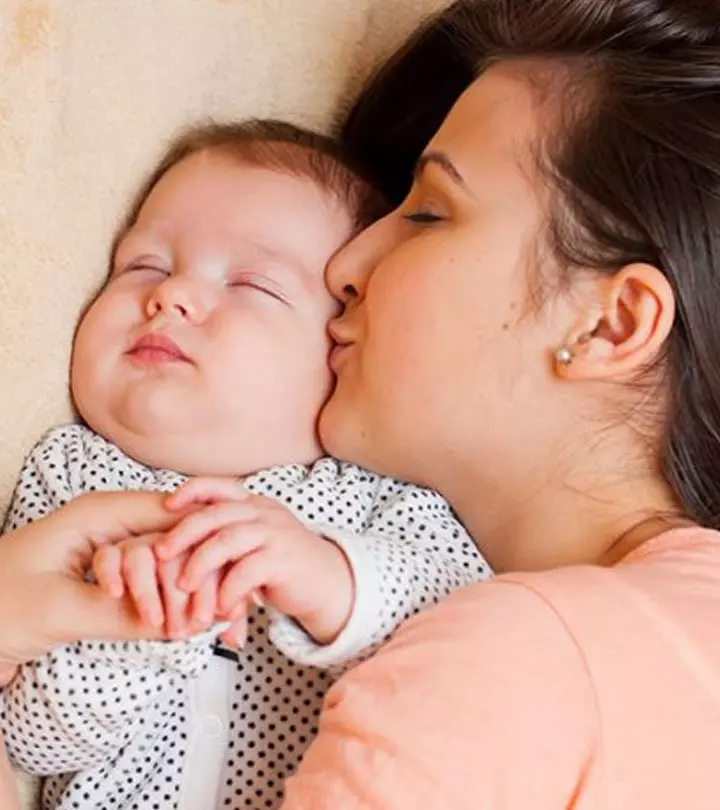
Is your bundle of joy soon to arrive? Or have you been recently blessed with one? Then, we are sure you might have checked all the right boxes on that important baby-care to-do list. A newborn’s well-being is the topmost priority for a new mom. Well, that explains those innumerable pre-baby shopping sprees, we guess! However, it is important to note that your baby may be born with certain allergies or may develop some soon after birth. Here are a few common things that might cause allergies in babies; things a new mom might need to look out for:
10. Certain Baby Care Products
The whole world has suddenly woken up to the fact that those so-called mild baby products can also be potentially harmful. Though the extent of harm is hitherto unmeasured, they can trigger skin allergies in the delicate infant skin. Don’t fall for products that say ‘clinically tested’ or ‘dermatologically tested’. It simply means that these products have gone through certain tests without declaring the results. Instead, go for products that have ‘clinically-proven’ mentioned on them.
9. Vaccination
Some babies might be allergic to certain vaccinations, like penicillin. Although penicillin itself as a standalone drug might not cause an allergy, it can result in one when used in combination with other drugs. So, if your baby develops blotches, rashes, or redness, check with your doctor if your baby is allergic to any particular vaccination (1).
8. Chemical Perfumes
After all the sweat and pain of childbirth followed by the breastfeeding sessions, a new mom would obviously want to feel and smell fresh. However, before you squirt some of that expensive perfume on yourself, have you checked its components? The preservatives and components in most fragrant cosmetics and perfumes frequently cause contact allergies leading to contact dermatitis (2). So, steer clear of them.
7. Smoky Air
When smoke can harm adults, then imagine what it can do to a baby’s delicate lungs? Often we assume that only heavy smoke is harmful. However, with your baby’s immunity being low, even that little smoke emanating from your kitchen can block his/her breathing. And, the less said, the better about passive smoking. Strictly keep away!
6. Cleaning Agents
You’d like to keep everything spic and span for your baby. But the kitchen and household cleaning agents contain harsh chemicals and antibacterials to be effective in cleaning. And these very chemicals might trigger an allergy in your newborn if he/she comes in contact with it.
5. Pets
As much as you love your pets, know that the dander in their tiny hair, saliva, feathers, or poop can cause wheezing, sneezing, cough and other respiratory allergies in your baby. So, keep your pets away until your baby is old enough.
4. Dust Mites
Dust mites are a bane of life for little babies as they cause a range of allergies including skin rashes or hives, breathing difficulties, and frequent illnesses. And getting rid of them isn’t easy either with daily cleaning and vacuuming being the only option. You can also try and cover your baby’s pillows and bedding with another cloth when not in use to minimize dust collection.
3. Woolen Clothing
Woolens are essential for your baby during winters and cold weather. But they also attract dust, fungus, and bacteria, some of which thrive on them when stored in damp areas. They may cause swelling, congestion, red welts, etc. Wash and dry your baby’s woolens in the hot sun before reusing them. And make sure you change them every 2 days.
2. Pollen
Pollens in air cause hay fever. The symptoms of hay fever appear similar to a common cold, like sneezing and runny nose. But the good part is that pollens appear only during a certain period of the year. You can certainly avoid stepping outdoors if your baby was born around this time.
1. Milk
Milk is essential for the sustenance of all newborn babies. However, your baby might be allergic to certain components in milk, especially formula milk. If your baby throws up formula after each feed, try switching to a different brand. But if this reaction continues, then in all likelihood, it might be an allergic reaction. Breastfeed your baby if you can. In the meantime, also get your baby checked for potential dairy allergies before proceeding.
Allergies are pretty common in babies and only require right medical intervention. So, do not fret if you see any allergic signs in your baby. Just consult your doctor, follow the remedial steps, and all should be fine. Good luck!






















